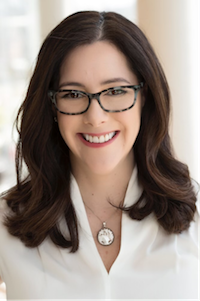Quick Takes
Rachelle M. Sanders is a recognized strategic management professional with over 25 years of leadership experience in healthcare and education. Since joining Montefiore Medicine: The Health System and Albert Einstein College of Medicine in 2011, as VP and Chief Development Officer, she has led the philanthropic efforts of this $7 billion academic health system.
“Montefiore treats everyone, regardless of their ability to pay. This is a scary time. But we are in it and we are driven by the urgency of the situation we’re facing.”
How has the COVID-19 pandemic changed Montefiore’s philanthropic efforts?
Like most advancement teams around the country, we’ve had to make some fundamental and substantial changes. A most obvious and unfortunate shift has been with the elimination of much of our in-person interaction and connection with donors, which we really miss. But, unexpectedly, I feel that an encouraging outcome is that our fundraising has become more direct and more effective.
Donors and prospects are generally more available. They are not traveling or out at night. They are often not in their office or heading to back-to-back meetings. So, it has been interesting that people are easier to reach. I am also sensing that our supporters are more eager to make a positive impact in these difficult times.
The pandemic has undoubtably changed our front-line fundraising. It has helped to make geographic limitations almost nonexistent. So, as an example, it doesn’t matter if a donor is in Palm Beach, Phoenix or Paris. We connect the same way now. With online platforms, we can reach anyone at any time and still showcase the great work of our physicians, scientists and staff.
Tell us a little more about your donors. What are the demographics?
An important part of Montefiore and Einstein’s mission is to care for underserved communities. The Bronx population has very challenged health outcomes as well as high rates of unemployment and poverty. Traditional “grateful patient” hospital philanthropy is modest because 85% of our patients are insured through government programs. Our patients are grateful for their care but have extremely limited financial capacity. Montefiore’s philanthropic support primarily comes from foundations and individuals who care deeply about social justice and see healthcare as a human right, not a privilege.
The engagement of our constituents is changing, too. In the past, they would be invited to attend a large fundraising Gala in an elegant hotel ballroom in Manhattan. In this socially distant time, we are finding that those same individuals are even more amenable to virtual events, interactions and communications. Now they are setting up Zoom meetings, which is fascinating. I think that’s because they’ve become quite adept and eager to participate as it works with their schedule. Meetings are often more efficient online, which allows us to be more productive and respectful of other people’s time.
We are also seeing more younger constituents making donations than ever before. As I mentioned, traditionally donors to academic medical centers and hospitals tend to be grateful patients. But our younger donors are not our patients (yet!). These up-and-coming professionals are looking for meaningful interactions and involvement to do something with impact and long-term benefits. I think they are supporting the scientific and medical programs that will, hopefully, lead to positive outcomes for the health of our community and country.
How has the COVID-19 pandemic altered the involvement of your Board of Trustees in your philanthropic activities?
Our Board of Trustees has always been a key to our fundraising efforts. That has not changed – and they are more involved than ever, but in different ways.
It has been an incredible time to collaborate with the Board. What I have found interesting is that most Board members are working at home, if they’re not retired. They have more time to engage. They’re not limited by their intense office and travel schedule like they used to be, so I can easily set up a Zoom meeting with a donor and the Trustee and invite them to presentations that they didn’t typically attend pre-pandemic.
Having more one-on-one time with them has been fantastic. Every Board of a non-profit has a Development Committee. But, really, if you serve on any nonprofit Board, you are a de facto part of a Development Committee, because the Board is also tasked with, and integral to, fundraising.
That is where Montefiore and Einstein’s Board has really pitched in to help. We have been able to engage more people outside of the typical committee structure. And they have brought many new people to the table – people who share our values and support what we are doing.
Is there a positive takeaway from the COVID-19 pandemic?
I am a mission-driven professional and I am so fortunate that my job enables me to truly make a difference in people’s lives. It is what I think about every day. From that perspective, I would say that the pandemic has helped me to reframe my own sense of gratitude for all that I have and can do, to re-energize with what is important and to refocus on what we can achieve – together – when faced with crisis.
The events of 2020 also provided the perfect platform for science worldwide. A donor once said to me, “I am here because of science. It was the science that saved my life and my sons’ lives.” That was a powerful moment for me. Years later, in the midst of a global pandemic and vaccination effort, I hear her words. Now more than ever we need science; we need to be interested in it, to learn from it and to support it philanthropically as much as we can.


